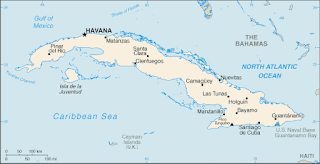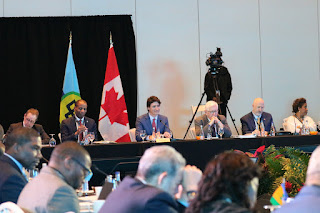How to Support Productive Internationalization in Latin America?
By Juan Carlos Hallak - Andrés López
Latin American countries are known to experience difficulties in integrating into the international economy. Numerous studies bear witness to this while recommending various policies to promote the advancement of productive internationalization in the region. Despite their potential benefits, the recommended policies can only be implemented in the presence of certain state capacities, which differ depending on the type of instrument. Managing a temporary import admission regime requires different capacities than implementing a single window for trade, promoting exports, or attracting investment. Policies also differ in terms of their associated costs and risks (e.g., corruption, state capture). However, countries often implement new policies without evaluating the available capacities or analyzing the related costs and risks, leading to a failure in achieving the expected benefits or resulting in truncated or failed experiences2). However, countries often implement new policies without evaluating what capabilities are available or analyzing the costs and risks associated with them. As a result, they may fail to reap the benefits they are hoping for.
Although the tools and categories available for assessing the capacities and risks entailed in different types of policies have been limited so far, significant efforts have been made to overcome this challenge. A new publication released by the Integration and Trade Sector (INT) at the Inter-American Development Bank (IDB) is a significant step in this direction. “Supporting the Internationalization of Production in Latin America: Policy Analysis, State Capacity Requirements, and Risks” (available in Spanish only) aims to build and apply analytical instruments as part of a wider evaluation of productive internationalization policies in Latin America. The next two sections of this blog post examine these instruments in greater detail.
We start by dividing policies into four categories:
- Tax and financial incentive regimes, aimed at promoting exports and investments;
- Productive internationalization support programs, generally run by agencies specialized in promoting exports, investments, and financial support institutions;
- Legal, operational, and physical infrastructure, which reduces costs and times for commercial transactions (physical and telecommunications infrastructure, trade facilitation, international agreements, etc.); and
- Coordination of policies supporting internationalization, such as export plans, councils, roundtables, and other internationalization strategy coordination mechanisms the required capacities vary depending on the different “phases” of the policy lifecycle:
- Adoption: This is the decision-making stage for implementation, designing, and launching a policy.
- Operation: This is where the administration of the benefits and/or services that the policy provides takes place.
- Evaluation: This phase involves continuous monitoring and impact evaluations, which may lead to decisions to redesign or terminate the policy.
The associated risks also differ in these three phases.
We found that the four types of policies particularly differ during the operation phase, and that the capacities required by coordination programs and policies at that stage are the most complex and hardest to build. In contrast, regimes have lower capacity demands during this phase. As a consequence, they tend to last longer and predominate in many countries, even in the absence of the capacities needed to adequately develop the remaining two phases.
Latin American countries have implemented a wide variety of policies to support internationalization, but they have not always been successful in generating the expected impacts. Often, the costs of these interventions seem to have been excessive in relation to the benefits obtained. In other cases, the downsides were not taken into account sufficiently. Likewise, on several occasions, policies that have not been rigorously evaluated and whose cost-benefit balance is dubious have been maintained over time, while others have been discontinued based on political rather than technical criteria.
Similarly, the region has disproportionately prioritized regimes over programs and coordination initiatives and has not always succeeded in providing the type of infrastructure needed to facilitate exports and attract investments. The fiscal cost of regimes can be twice as high as that of programs, if not more so, and is also far higher than that of coordination policies. At the same time, there are often shortfalls in the provision of some relatively low-cost public goods (e.g., trade facilitation). This imbalance is puzzling, especially considering that the evidence on the impact of regimes is mixed at best. Regimes also allow more room for state capture and corruption practices - and dismantling them is often complex even when they do not deliver the expected results due to the economic-political interests that emerge around keeping them in place.
Several factors explain countries’ preference for regimes: i) the capacity requirement is lower, primarily in the operational phase; ii) adopting a single regime is relatively easy, for example, by replicating the characteristics of existing programs in other countries,; iii) the fiscal cost generally consists of tax waivers that do not involve direct expenditure; iv) the visibility and political impact of regimes is usually higher, since it is easy to attribute the direct creation of a certain number of jobs to their implementation.
In contrast, programs require more complex capacities, along with flexibility and appropriate incentive schemes. At the same time, they have fewer political pay-off, are harder to communicate, and imply direct expenditures that, although small, tend to be prioritized for other more urgent uses. Under these conditions, there may be limited political conviction to adopt programs, resulting in insufficient or volatile funding. Thus, “vicious circles” can emerge: if a program’s resources are limited or unstable, it may not be effectively implemented, which then limits its impact and may favor its dismantling.
In conclusion, Latin America has implemented a variety of policies to support internationalization, but these have often failed to generate the expected impacts due to a series of factors. These include an overemphasis on regimes, a lack of adequate infrastructure, and shortfalls in the capacities needed to implement and evaluate policies. With these points in mind, we recommend the following courses of action:
First, before deciding to adopt an intervention, countries need to have the capacity to implement it appropriately throughout its life cycle, and to identify and properly assess the potential risks it entails. This is particularly important for policies with high sunk costs, and which would be politically costly to reverse.
At the same time, the optimal policy portfolio should not take these capacities as given and immutable, but rather “invest” in building them pari passu as the development process moves forward. The results obtained can help to legitimize the agencies that implement them and contribute to their gaining stability and accumulating the individual and organizational capacities that will enable them to handle more complex interventions with broader and more substantive impacts. This is essential for Latin American countries to significantly improve their integration into the global economy.






